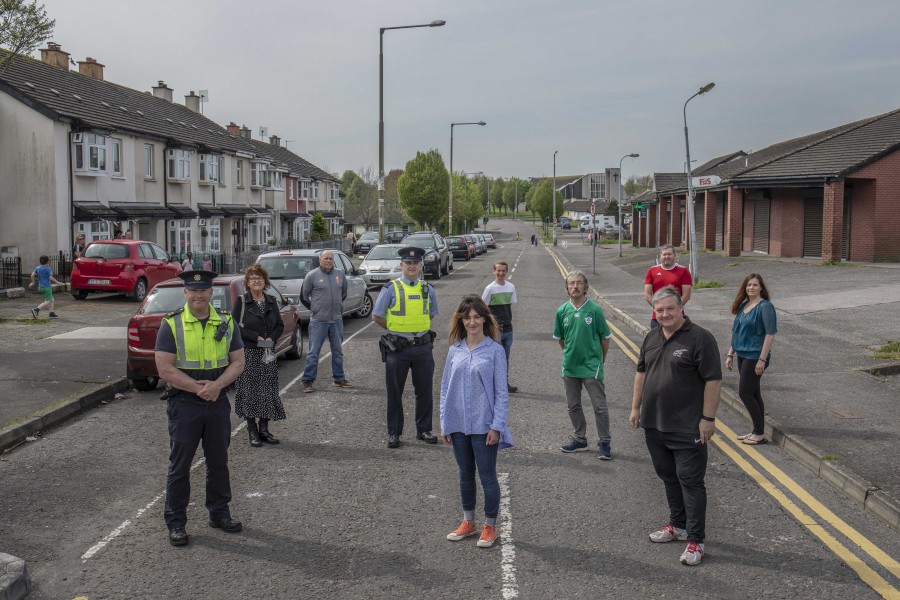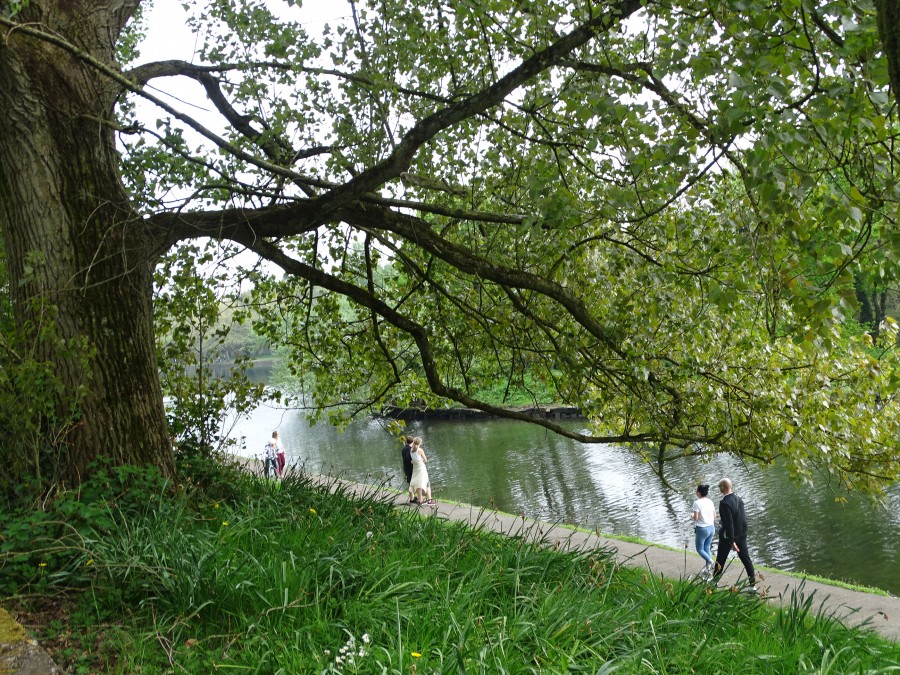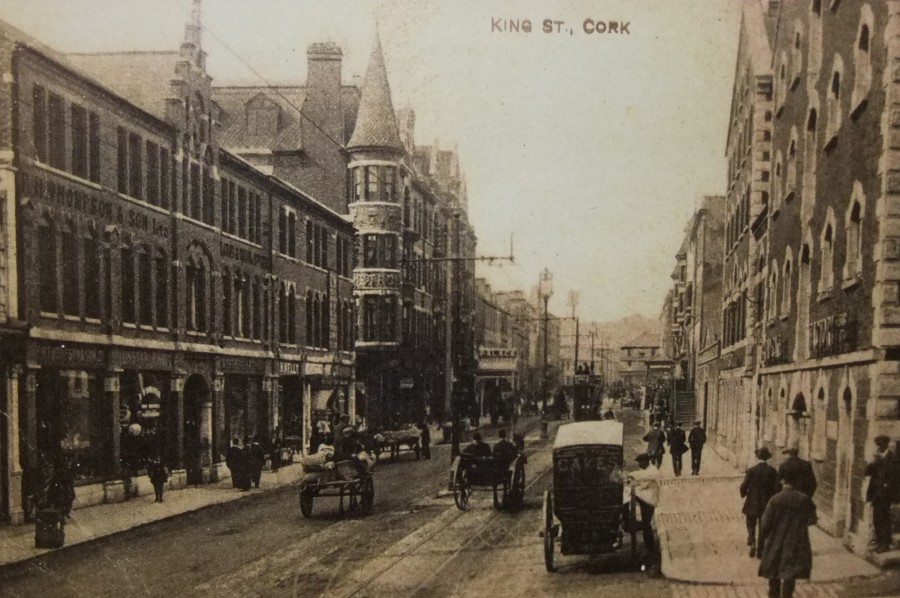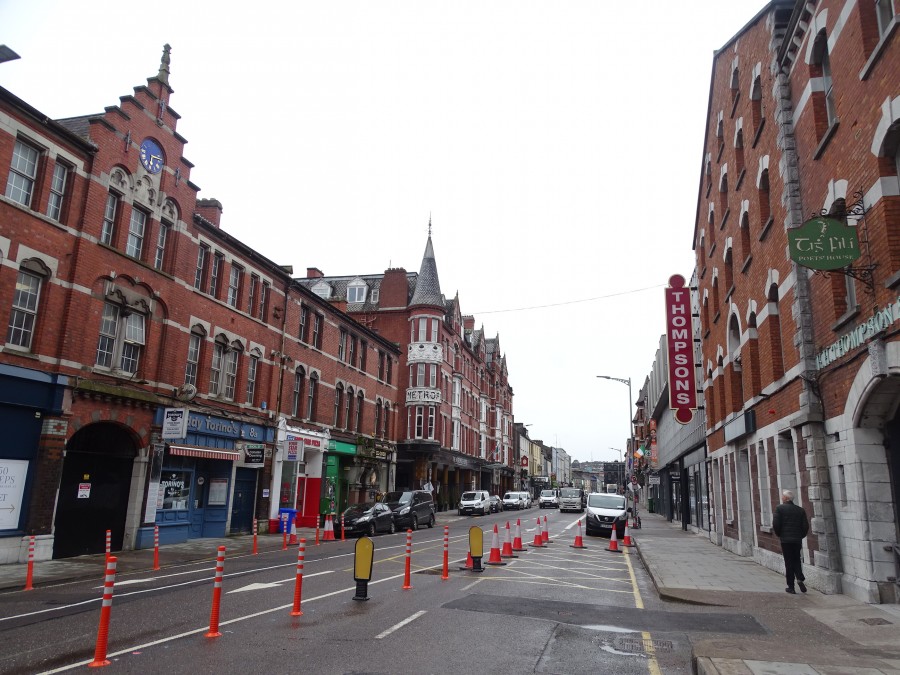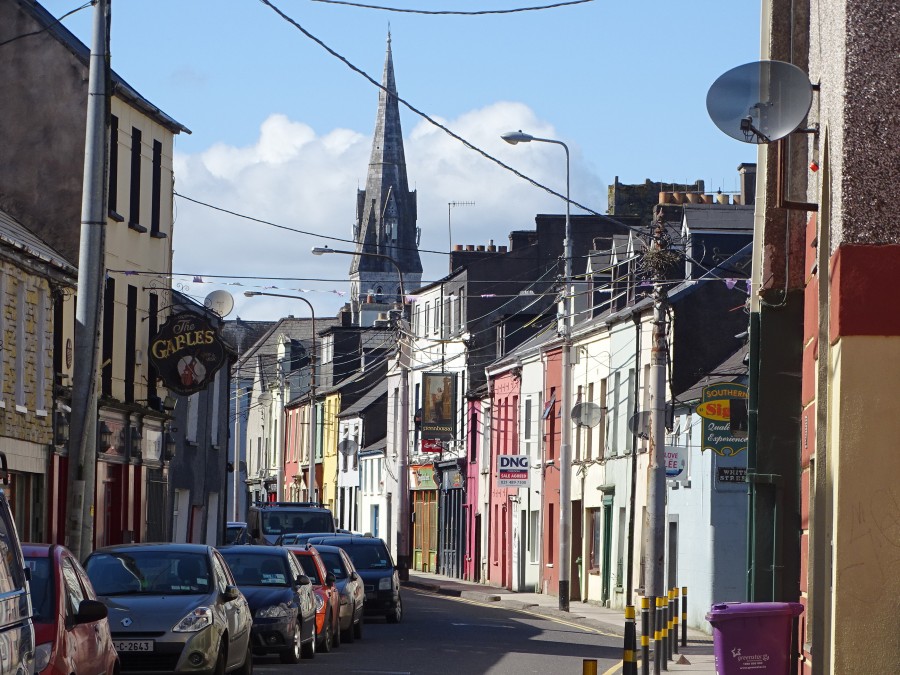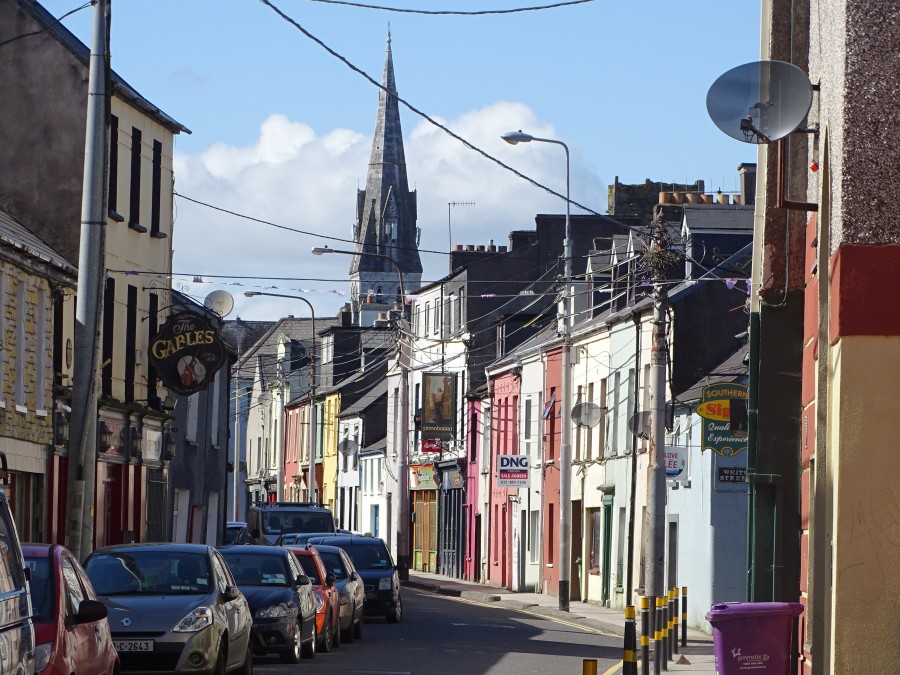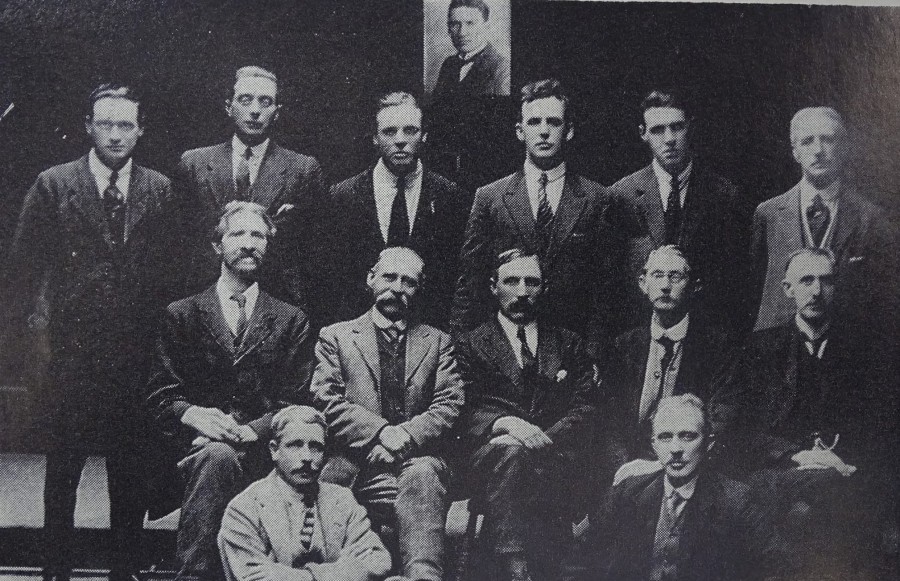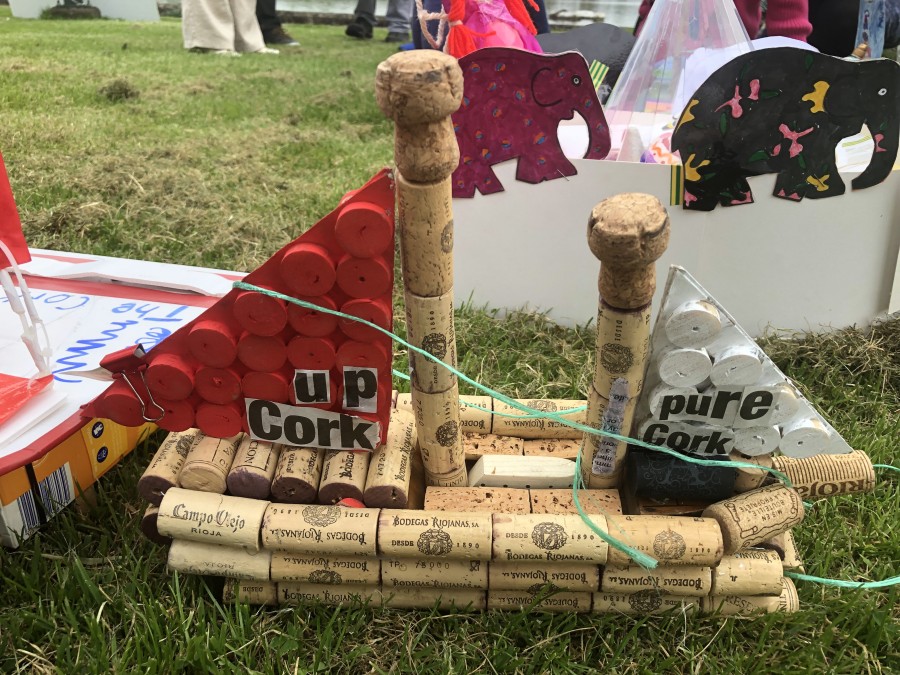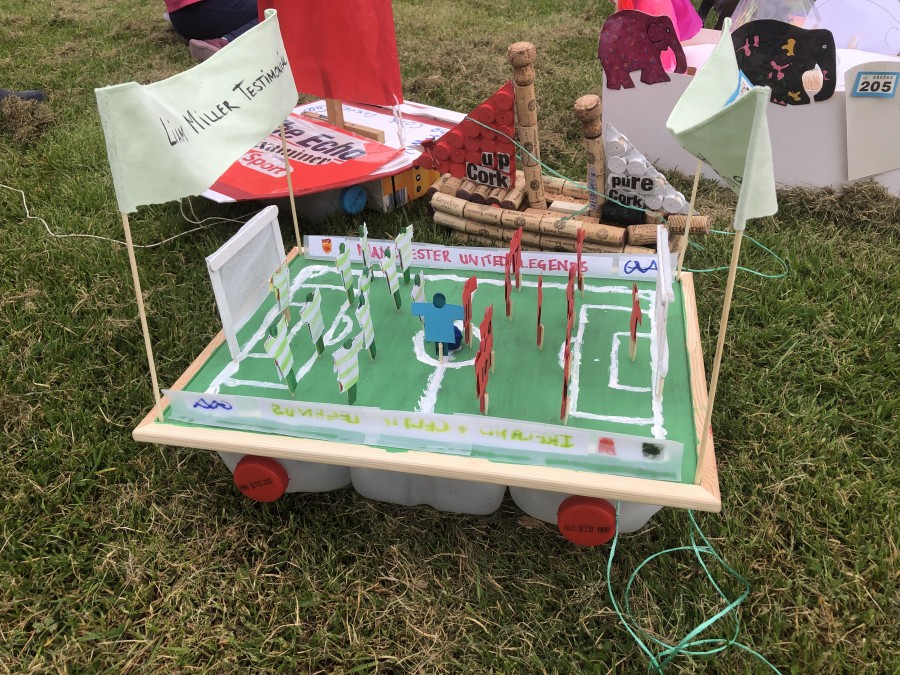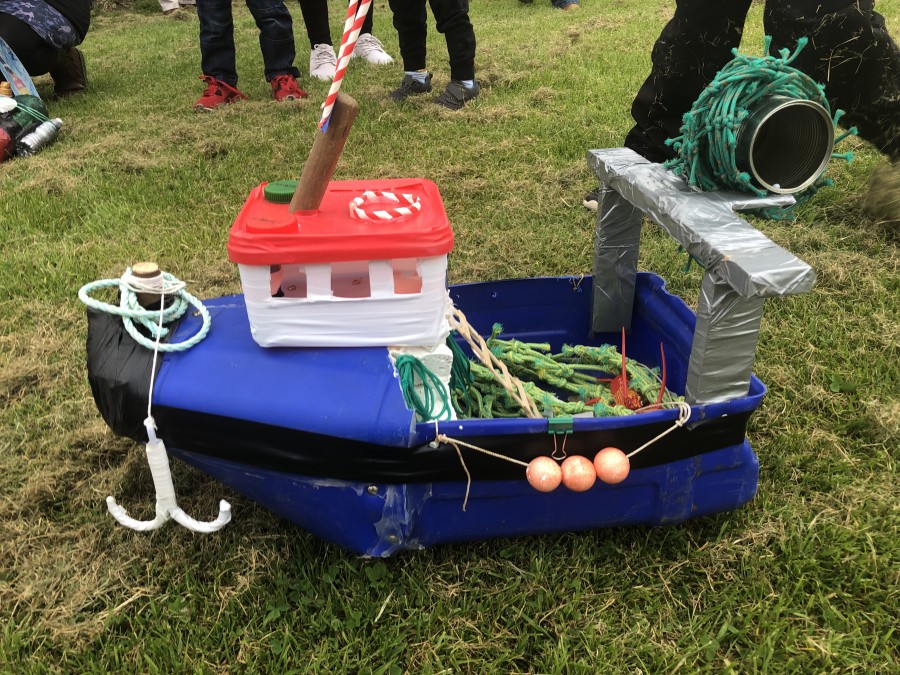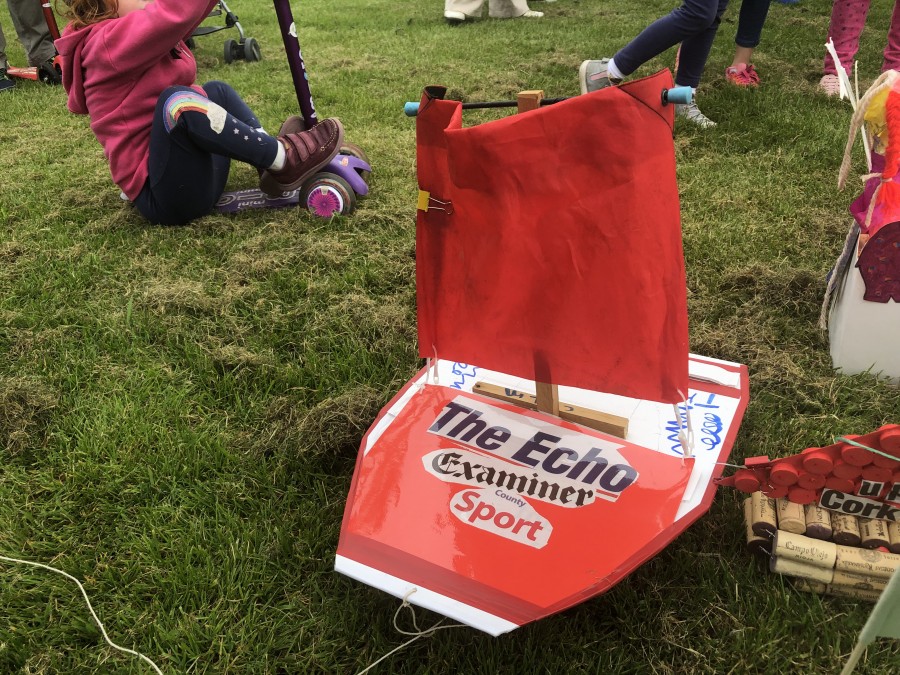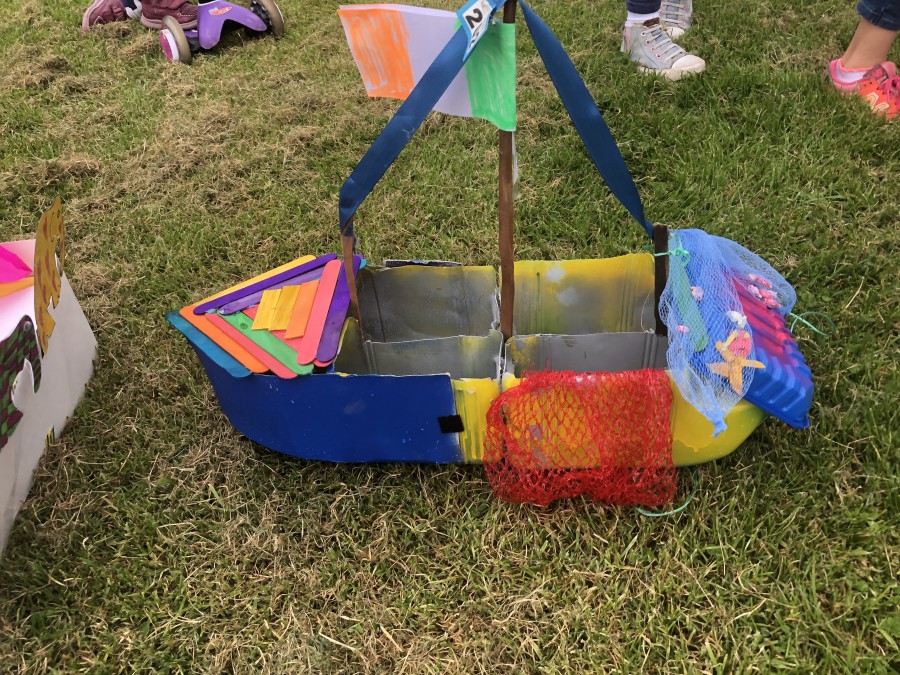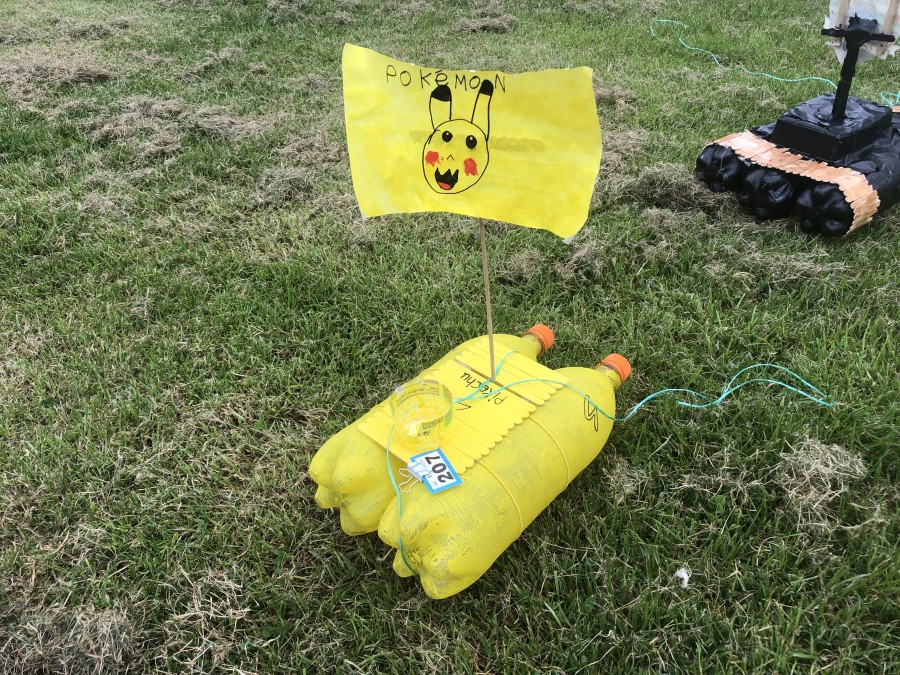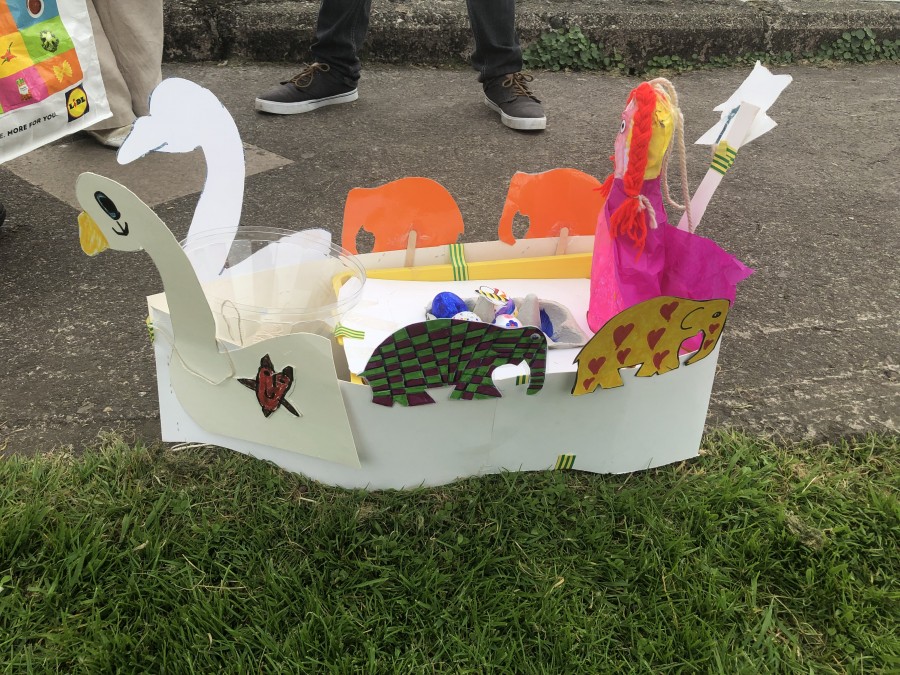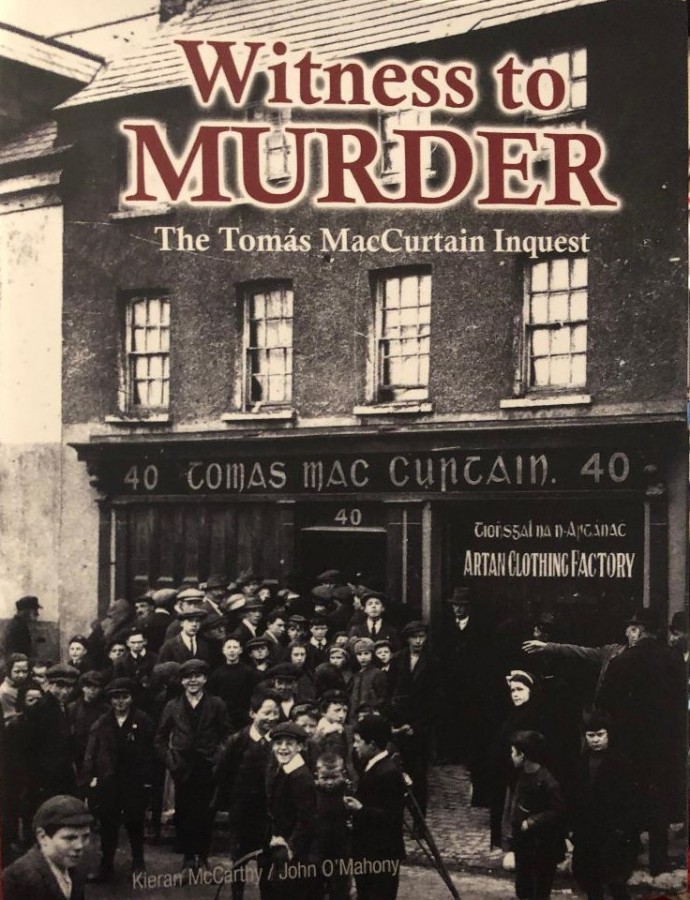Coronavirus Roadmap for Re-Opening Society and Economy
Full PDF Document: Irish Government Roadmap for Reopening Society and Business 1st May 2020
The Roadmap is guided by a number of over-riding principles. That is, an approach which is:-
Safe –informed and guided by a public health assessment of risk.
Rational – includes consideration of the social and economic benefits and impacts of any modifications of restrictions and their feasibility.
Evidence-informed – uses all of the data and research available to us to guide thinking.
Fair – Ethical and respects human dignity, autonomy and supports equality.
Open and transparent – decisions are clear, well communicated and subject to the necessary checks and balances.
Whole of Society – based on the concept of solidarity and supporting cohesion as we exit over time.
Kieran’s Our City, Our Town, 30 April 2020
Kieran’s Our City, Our Town Article,
Cork Independent, 30 April 2020
Remembering 1920: MacCurtain Street is Born
On 23 April 1920 – this week one hundred years ago – one of Cork’s principal streets was to get a name change to provide another outlet for the public outpouring of grief arising from the murder of Tomás MacCurtain. Lord Mayor Terence MacSwiney, under Lord Mayor’s items, at the Cork Corporation meeting proposed in a short motion: “That the name of King Street be changed to MacCurtain Street”. He did not wish to add anything to the motion except to say that it was their duty “to do honour to their immortal dead” but did propose that the plaque for the thoroughfare be solely in the Irish language.
There were 36 of the 56 Council members present with the majority on the night being Sinn Féin members. Commercial public representative Sir John Scott moved as an amendment that the renaming proposal matter be deferred to the next meeting in order that the people who had vested interests in the street in question could come before the Council or any public objection could be taken to the proposed change. There was no seconder to Sir John Scott’s amendment and without any more debate the Lord Mayor’s motion was carried.
Sir John Scott did give a historic reference within his speech, pointing out that King Street had been called after an old family whose members had been prominently identified with the commerce and politics of Cork. Robert King (1796-1867) was of the Kingston family of Mitchelstown Castle. He was a member of the British army, who stayed in France after Napoleon’s fall. He was returned to Parliament for County Cork – a Whig politician – from 1826 to 1832. In 1836 he was High Sheriff of County Cork.
The renaming of King Street to MacCurtain Street was one of three acts of remembrance to be put into place to consolidate the public solidarity against the murder of Tomás MacCurtain in the weeks that followed but also they were to make sure his future memory was secured in Cork. The other acts – the inquest and a public memorial fund – also caught the public imagination.
On 30 March 1920 a public meeting was held in the City Hall to inaugurate a memorial fund for the widow und family of the Lord Mayor Alderman Tomás MacCurtain. Bishop Cohalan chaired the meeting. He very much regretted the sad and tragic event that brought them together. His first duty and the duty of the whole body of citizens was to express and convey to Mrs MacCurtain, the Lady Mayoress, their sincere sympathy on the great bereavement that had befallen her. He knew the Lord Mayor since 1916, and in his death he deemed that the citizens of Cork had lost an “intelligent, man, an upright man, and a very unselfish man”.
The Bishop denoted that the object of their meeting was to erect a financial monument or fund to the Lord Mayor, to support for a time the widow and the children. He appealed to the citizens, irrespective of creed or class, to support the fund; he noted; “it is not an appeal for a private individual; it is an appeal for a man who was the civic head of the municipality, the first citizen of Cork”.
The speeches from those present – politicians and commercial figures – contained many accolades given to Tomás and in their own way laid the foundations of how he would be remembered and described by historians in years to come. Alderman Liam de Róiste’s intervention is noteworthy in his description of Tomás. He rose and in Irish proposed the MacCurtain Memorial Fund. He appealed to the citizens of Cork and to the people of Ireland in general to make this fund a success. He said that never before in the history of Cork City had he seen such an occasion to arise; “Tomás MacCurtain was struck down by the hand of an assassin. Had he been spared those associated with his work he felt confident that his energy, his initiative, his love of country, and his desire for the city’s welfare would have been valuable assets to the whole community, and would have been meant much for the progress and welfare of all of all sections and classes in the city”.
Cllr Barry Egan proposed that Messrs D. O’Connell, Coroner William Murphy, solicitor, the Town Clerk, the City Solicitor, City Engineer and Mr Hegarty (Lord Mayor’s Secretary) be appointed secretaries of the Fund. Alderman Denis Lucey seconded and it was carried unanimously.
As the days and weeks passed between April and October 1920, donations were listed regularly as subscription lists – over 25 listings at least – on the Cork Examiner. By early October 1920, the public had subscribed over £14,600 in donations and over £2,300 has been given to the family. For the most part donations came in small monetary numbers – a pound and few shillings. On 26 April 1920, a letter (catalogued in Cork City and County Archives) to Lord Mayor Terence MacSwiney from Michael Collins enclosed his contribution to the Lord Mayor’s Memorial Fund. The letter noted the national significance and great importance of the fund.
However, one of the largest donations was from Terence MacSwiney himself who gave two donations from his Lord Mayor’s salary – two £125 donations – one at the start of the memorial fund and the other in early October 1920 during his hunger strike Brixton Prison where he gave £125 of his Lord Mayor’s salary. The memorial fund process finished just before December 1920.
Kieran’s new book Witness to Murder, The Inquest of Tomás MacCurtain is now available to purchase online (co-authored with John O’Mahony 2020, Irish Examiner/ www.examiner.ie)
Captions:
1046a. King Street, c.1910 (picture: Cork Public Museum)
1046b. MacCurtain Street, March 2020 (picture: Kieran McCarthy)
Supports for Business Impacted by COVID-19, April 2020
Very useful information for businesses; click on the link below,
Supports for businesses impacted-by COVID-19
Cork City Heritage Plan Call Out for Ideas, April 2020
Kieran’s Our City, Our Town, 23 April 2020
Kieran’s Our City, Our Town Article,
Cork Independent, 23 April 2020
Remembering 1920: The Inquest Jury Speaks
At the conclusion of the Inquest of Tomás MacCurtain on 17 April 1920, Chairman Coroner James McCabe thanked the jury for the great care and attention they had given the various witness interviews. The 14-man jury comprised: William J Barry (foreman), Daniel Barrett, Richard Barrett, Michael J Grace, David Hennessy, Harry Loreton, Patrick McGrath, Melville McWilliams, Florence O’Donoghue, Peter O’Donovan, Jeremiah O’Callaghan, Thomas O’Shaughnessy, Tadgh O’Sullivan and Pádraig O’Sullivan. With the passing of time, the memory of several of the latter members has disappeared. Through searching through obituaries, I have constructed some info on five of the jury members.
William J Barry was the foreman and his obituary for 27 January 1953 in the Cork Examiner outlines that he was a secondary school teacher, William was a language teacher and taught at various schools in Cork City, as well as outside colleges. He became a Fianna Fáil member of Cork Corporation in 1945 and was Secretary to the Cork Fever Hospital Committee.
Patrick McGrath became an apprentice blacksmith and had his own smithy in Morgan Street in Cork City Centre. During 1920 he was an officer in the C Company, Second Battalion, Cork No. 1 Brigade and took part in various armed engagements in and around Cork City. When peace returned to Ireland, Patrick or Pa McGrath contented himself with following his trade of blacksmith. He also became interested in bodies such as the Old IRA Men’s Association and Fianna Fáil. He remained in the background for more than twenty years, known and loved by his own circle of friends, political and sporting acquaintances. His entry into the open political arena came through his service as Director of Elections in Cork City on two occasions in the 1940’s. In 1946 he won a seat through a bye-election to Dáil Éireann and retained his seat in the 1948, 1951 and in the 1954 General Election. He did not become a member of the Cork Corporation until 1950. Two years in 1952 later he was elected Lord Mayor and was Lord Mayor for four years.
Florence O’Donoghue was one of three brothers – Paddy and Jeremiah being the others – who in 1910, left their farm home at Killeen, Glenflesk, County Kerry and travelled to Cork City to seek their fortune. Their father was a car-man having established a road business between Glenflesk and the city. He transported butter by horse and cart over the mountains of Derrynasaggart into the city and brought home merchandise for the neighbouring farmers. Jeremiah passed away shortly after arriving in Cork. Paddy and Florence after apprenticeship established a drapery business in North Main Street under the name O’Donoghue Brothers. Sometime later they moved to Oliver Plunkett Street, then known as Old George’s Street and there opened another establishment.
Just before 1914, Florence or Flor opened up a public house at 54 Thomas Davis Street in Blackpool. He still maintained an interest in the Oliver Plunkett Street business. Flor, now advanced in years, became interested in the Volunteer and Sinn Féin movement. Tomás MacCurtain appointed him Head of Communications of the Cork No.1 Brigade and later was prominent in the city in collecting money for the Dáil Éireann Loan schemes. Then came the murder of Lord Mayor Tomás Mac Curtain and Flor was summoned to sit on the jury. Afterwards Flor remained head of intelligence of the IRA during the Irish War on Independence.
Family notes left by Patrick O’Sullivan of Bantry and the Silver Key Public House in Ballinlough (thanks to his daughter Clare O’Sullivan Herlihy) outline that during the period from 1 April 1920 to 21 March 1921 he was operating with C Company, 2nd Battalion, Cork No. 1 Brigade. He was picked to take part in the funeral of Tomás McCurtain from Blackpool to City Hall and was also a member of the bodyguard at the lying in state. Patrick was a member of the Volunteer firing party who in full uniform, fired the volley over his grave. He became a member of the inquiry into the murder of Tomas McCurtain acting on orders from his superior officer.
Patrick noted: “The official Jury summoned by the RIC were evidently afraid to put in an appearance when the Coroner called them together. Commandant Jerome O’Donovan then took the initiative and selected a republican Jury. The inquest lasted three weeks and during that time we were constantly under the observation of the RIC until we were known by sight to every constable in the City. Consequently, after the inquest I was a marked man and suffered the usual handicap of notoriety at that time. Namely, constant, surprise raids on my digs in Wallace’s Avenue, until finally I was forced to go on the run completely in May 1920. Maddened by their repeated failure to catch me they raided my digs at night and when I wasn’t there, they lay in ambush hoping I’d return. They raided my digs again and snatched my belongings and ruined two suitcases of clothes, which I didn’t have time to remove. They told my landlady that they would riddle me on sight”.
Tadgh O’Sullivan was reared on a farm north of the village of Barraduff, Co. Kerry and was passionate in the study of Irish being inspired by his national school teacher. He joined the IRB and found himself in Cork City. As a volunteer and officer of C Company, 2nd Battalion, Cork No.1 Brigade, he was constantly on duty and participated in many major operations in the City. He participated in the attack on Farran RIC Barracks and also in the Barrack Street Ambush on 9 October 1920. On 19 April 1921, whilst coming out of a house in Douglas Street he was intercepted by the Black and Tans and shot down in the street. There is a plaque on the wall of the house in 82 Douglas Street and a monument in Rathmore on which he is remembered along with others.
If anyone has information on the jury members, I have flagged that have no information surviving on them, please get in contact with me at 087 655 3389 or email mccarthy_kieran@yahoo.com.
Caption:
1045a. Picture of Inquest Jury of Tomás MacCurtain, 1920; Back row: Daniel Barrett, David Hennessy, Pádraig O’Sullivan, Patrick McGrath, Peter O’Donovan, Thomas F O’Shaughnessy; Sitting: Richard Barrett, Jeremiah O’Callaghan, William J Barry (foreman), Michael J Grace, Florence O’Donoghue, Melville McWilliams, Harry Loreton, and inset Tadgh O’Sullivan (source: Cork City Library).
Cllr McCarthy’s Make a Model Boat Project 2020
Douglas Road and Independent Cllr Kieran McCarthy invites all Cork young people to participate in the tenth year of McCarthy’s Make a Model Boat Project. This year because of the Coronvirus all interested participants must make a model boat at home from recycled materials and submit a picture or a video of it to the competition organisers at kidsmodelboat2020@gmail.com. The event is being run in association with Meitheal Mara and the Cork Harbour Festival Team who have cancelled nearly all of their festival this year bar their collaboration with Kieran on the Make a Model Boat Project. There are three categories, two for primary and one for secondary students. The theme is ‘At Home by the Lee’, which is open to interpretation. The model must be creative though and must be able to float. There are prizes for best models and the event is free to enter. For further information, please see the events section at www.corkharbourfestival.com. The closing date for participants is 30 April 2020.
Cllr McCarthy, who is heading up the event, noted “I am encouraging creation, innovation and imagination amongst our young people, which are important traits for all of us to develop. I am going to miss this year seeing the models float at The Lough. The Make a Model Boat Project is part of a suite of community projects I have organised and personally invested in over the years– the others include the Discover Cork: Schools’ Heritage Project with Cork City Council, the Community local history walks, local history publications, McCarthy’s Community Talent Competition and Cork City Musical Society. Many of the latter projects were have gone digital or soon will go digital for this year. I look forward to the digital challenge”.
Some pictures from last year:
Cllr Kieran McCarthy highlights the key role of Regions and cities in helping defeat the Covid19 during a debate with Stella Kyriakides, Commissioner for Health and Food Safety
Press Release:
* The Conference of Presidents of the European Committee of the Regions:
Apostolos Tzitzikostas, President of the European Committee of the Regions and Governor of the Region of Central Macedonia, Greece
Vasco Ilídio Alves Cordeiro, First Vice-President of the European Committee of the Regions and President of the Regional Government of the Azores, Portugal
Olgierd Geblewicz, President of the EPP Group in the European Committee of the Regions and President of the Westpomeranian Region, Poland
Christophe Rouillon, President of the PES Group in the European Committee of the Regions and Mayor of Coulaines, France
François Decoster, President of the Renew Europe Group in the European Committee of the Regions and Mayor of St Omer, France
Władysław Ortyl, President of the ECR Group in the European Committee of the Regions and President of the Podkarpackie Region, Poland
Kieran McCarthy, President of the EA Group in the European Committee of the Regions and Member of the Cork City Council, Ireland
Satu Haapanen, co-President of the Greens Group in the European Committee of the Regions and City Councillor of Oulu, Finland
McCarthy’s Make a Model Boat 2020 (At Home Edition)
It’s the tenth edition and is usually held at the Lough but this year is different!
The Theme is “At Home by the Lee”
#athomebythelee #creativityathome
Make a model boat at home from recycled materials with the theme At Home by The Lee.
There are three age categories 4-8yrs, 9-12yrs and 13-16yrs.
There are prizes for best models and the project is free to enter.
The closing date for participants is April 30th 2020.
You will need to send a picture or video of your creation to kidsmodelboat2020@gmail.com
In association with Cork Harbour Festival & Ocean to City
More event details here:
http://corkharbourfestival.com/events/
Some pictures of boats from last year attached:
Witness to Murder Publication Launched, April 2020
The new book ‘Witness to Murder’ by Cllr Kieran McCarthy and John O’Mahony, and published by the Irish Examiner, has been launched. It is a transcript of the Tomás MacCurtain inquest one hundred years ago following his murder on 20 March 1920.
The last time Tomás’ inquest in full was published was in the Cork Examiner between 23 March 1920 and 18 April 1920. Despite the ordeal and daily fallout, over time the fourteen hearing sessions have not overly been revisited by scholars of the Irish War of Independence.
The verdict has been highlighted on many occasions by many historians, but the information of the inquest has never been overly written about or the narratives within it championed. So, this book brings together the inquest data into one source. It is about giving a voice to the solicitors, jury and those interviewed
The transcript of the newspaper text will help scholars of the War of Independence in their research to mine down further into the complexities of the time but also to keep the human dimension at the heart of new emerging research. This transcript in particular is inspired by the epic ‘Atlas of the Irish Revolution’ and the ongoing digitisation of State files and interviews of veterans of the War of Independence held at the Bureau of Military History in Cathal Brugha Barracks, Dublin– both sources, the Atlas and the Bureau try to bring a holistic perspective to what narratives, sources and memories have survived.
Cllr McCarthy notes: “Tomás MacCurtain (1884-1920) is truly a colossus in Cork history who has attracted many historians, enthusiasts and champions to tell his story. His story is peppered with several aspects – amongst those that shine out are his love of his family, city, country, language comradeship, and hope – all mixed with pure tragedy. In many ways, the murder of Tomás MacCurtain on the night of 19-20 March 1920 changed the future public and collective memory narrative of Cork history forever”.
Cllr McCarthy continued; “One hundred years on after his murder, the memory of Tomás and his life and times and works are a central part of the history of politics in the city and the city and region’s role within the Irish War of Independence”.
At this moment in time Witness to Murder by Kieran McCarthy and John O’Mahony is only available to buy online at www.examiner.ie.
